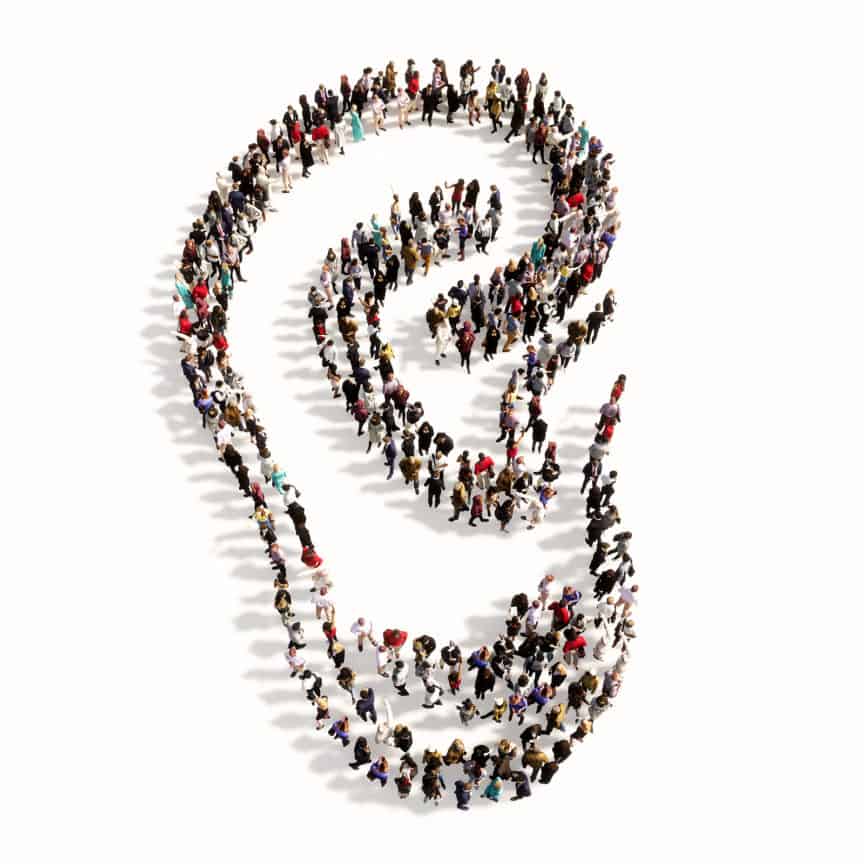- How to Care for Infants With Hearing Loss - April 15, 2024
- Hearing Aid Tips for Runners - April 5, 2024
- Overcoming Misconceptions Around Hearing Aids - March 27, 2024
Age is the most common cause of hearing loss, but more young people are getting hearing loss. This is because the world is getting noisier. Noise-induced hearing loss happens when there is too much noise, and the more you know about when you might be at risk, the more you can do to protect yourself.
Hearing loss caused by noise
Noise-induced hearing loss happens when the stereocilia, tiny hair-like cells, are damaged by a lot of noise. Stereocilia send information about sounds from the inner ear to the brain. This makes it hard for people to understand and respond to conversations and other sounds.
Sound is measured in decibels, and any decibel above 85 can hurt the stereocilia. The longer it takes for damage to happen, the lower the decibel level. For example, it can take years for a person to lose their hearing if they work in a factory where the decibel level is 85dB. But if you are near a blast, like an explosion or gunshot, the decibel level can reach anywhere from 140 to 165, damaging your hearing in a matter of seconds.
Daily Noise Exposure
If you know what you do every day, you can be ready to protect your hearing when it might be at risk. Even though it’s hard to know where all the noise will come from, most people have a predictable list of places they go during the week.
Knowing the decibel levels of the places you go most often, you can decide when it might be best to wear earplugs to protect your ears. Daily noise exposure is a way to figure out how loud the noise is and how long you are exposed to it every day.
Most smartphones come with apps that let you measure the decibel level of any place you visit. If the average decibel level is 85 dB or higher, it is essential to know that you can listen to sounds at 85 dB for 8 hours and still stay within the recommended daily noise exposure. When the decibel level goes up to 88dB, you can only be around it for 4 hours without getting hurt. Try measuring the decibel level in that space several times a day to ensure you get an accurate answer.
How to stop hearing loss
Hearing loss can affect a person’s ability to think and get along with others, even under 50. Hearing loss caused by noise is permanent. The more you can do to stop damage, the better for your mental, physical, and emotional health you will be in the long run.
Wearing earplugs and earmuffs can lower the ambient decibel level in space by anywhere from 15 to 33 decibels, which can help stop a problem before it starts. OSHA says that it’s the employer’s job to give workers hearing protection for free, but it’s up to you to ensure that they wear them correctly.
Protecting your hearing while off the clock
It’s also important to know that hearing damage caused by noise doesn’t always happen at work. So many sounds in our lives are enjoyable, but we may not realize how much damage they are doing to our ears.
Many people don’t notice that using personal listening devices with headphones is a problem. Most people know they should wear hearing protection when using a leaf blower or a lawn mower, but many don’t know that the sounds in headphones can send decibels of over 100dB directly into the ear canal. With unlimited streaming and a never-ending supply of media, people watch and listen to music for longer than ever, making the damage last longer.
Ensure that your headphones aren’t turned up to more than 60% of their total volume and that you don’t listen for too long.
Treat your hearing loss.
If you think you might have hearing loss, you should get it checked out as soon as possible. Even though hearing loss caused by noise is permanent, hearing aids can help a lot. Schedule a hearing test today to find out the best way to help you hear the people in your life and the things you love.

